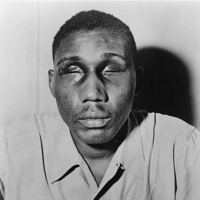Rascals case in brief
In the beginning, in 1989, more than 90 children at the Little Rascals Day Care Center in Edenton, North Carolina, accused a total of 20 adults with 429 instances of sexual abuse over a three-year period. It may have all begun with one parent’s complaint about punishment given her child.
Among the alleged perpetrators: the sheriff and mayor. But prosecutors would charge only Robin Byrum, Darlene Harris, Elizabeth “Betsy” Kelly, Robert “Bob” Kelly, Willard Scott Privott, Shelley Stone and Dawn Wilson – the Edenton 7.
Along with sodomy and beatings, allegations included a baby killed with a handgun, a child being hung upside down from a tree and being set on fire and countless other fantastic incidents involving spaceships, hot air balloons, pirate ships and trained sharks.
By the time prosecutors dropped the last charges in 1997, Little Rascals had become North Carolina’s longest and most costly criminal trial. Prosecutors kept defendants jailed in hopes at least one would turn against their supposed co-conspirators. Remarkably, none did. Another shameful record: Five defendants had to wait longer to face their accusers in court than anyone else in North Carolina history.
Between 1991 and 1997, Ofra Bikel produced three extraordinary episodes on the Little Rascals case for the PBS series “Frontline.” Although “Innocence Lost” did not deter prosecutors, it exposed their tactics and fostered nationwide skepticism and dismay.
With each passing year, the absurdity of the Little Rascals charges has become more obvious. But no admission of error has ever come from prosecutors, police, interviewers or parents. This site is devoted to the issues raised by this case.
On Facebook
Click for earlier Facebook posts archived on this site
Click to go to
Today’s random selection from the Little Rascals Day Care archives….
Click for earlier Facebook posts archived on this site
Click to go to
Today’s random selection from the Little Rascals Day Care archives….
Psychiatry, the devil and Gloria Steinem
 March 24, 2014
March 24, 2014
As described in Richard Noll’s “When Psychiatry Battled the Devil,” the 7th annual conference of the International Society for the Study of Multiple Personality and Dissociation, held in Chicago in November 1990, proved to be a turning point in mainline psychiatry’s attitude toward “satanic ritual abuse” and the multiple personalities it supposedly spawned.
It was also notable for the involvement of perhaps the country’s most celebrated believer in SRA.
“A large hotel ballroom (was) filled with most of the more than 700 conference attendees,” Noll recalled. “Television crews were on hand…. So was Gloria Steinem….
“(Anthropologist Sherrill) Mulhern and I were strident in our outright rejection of the veracity of SRA claims….
“Steinem approached me after my talk and suggested materials to read which she felt would help me change my opinion of SRA accounts….”
Not only had Steinem been using Ms. magazine to promote claims of ritual abuse, MPD and repressed memory, but also – just months before the Chicago conference – she had underwritten an archeological search for the imaginary “McMartin tunnels.”
I asked Noll what else he remembered about their encounter.
“She came up to me while I was still sitting up on stage and hundreds of people were still milling around. I didn’t recognize her at first until I stared down at her name tag, then she rolled her eyes and made a face that indicated, ‘Yeah, it’s me . . . .’
“She wrote down a couple of titles that I frankly do not remember….You know, for years I saved that piece of paper she wrote on.”
As far as I can tell, Steinem has never removed her name from the very long list of unapologetic SRA believers. But who knows – maybe it’s a position she will want to reexamine as an octogenarian.
Is psychiatry ready to face up to its denial?
 Feb. 1, 2014
Feb. 1, 2014
“As our medical schools and graduate programs fill with students who were born after 1989, we meet young mental health professionals-in-training who have no knowledge or
living memory of the Satanic ritual abuse (SRA) moral panic of the 1980s and early 1990s. To those of us old enough to have been there, that era already seems like a curious relic of the past, bracketed in our memory palaces behind a door we are loathe to open again.
“Some mass cultural phenomena are so emotionally-charged, so febrile, and in retrospect so causally incomprehensible, that we feel compelled to move on silently and feign forgetfulness…
“Despite the discomfort it brings, we owe it to the current generation of clinicians to remember that an elite minority within the American psychiatric profession played a small
but ultimately decisive role in the cultural validation, and then reduction, of the Satanism moral panic between 1988 and 1994….
“Are we ready now to reopen a discussion on this moral panic? Will both clinicians and historians of psychiatry be willing to be on record?”
– From “When Psychiatry Battled the Devil” by Richard Noll in Psychiatric Times (Dec. 6, 2013)
Wow! After more than two years of seeing mental health professionals shrug off responsibility for the moral panic they promoted, I can hardly believe what I’m reading. Noll, an accomplished author and professor, traces how it all happened – and asks, “Shall we continue to silence memory, or allow it to speak?”
An early vote to silence memory came from an unexpected source: Psychiatric Times itself, which clumsily pulled Noll’s piece from its website.
By contrast, Allen Frances, professor emeritus of psychiatry at Duke, offered a powerful – and I hope influential – personal mea culpa.
If anyone deserves pardon, why not Edenton Seven?
May 30, 2012
Is the case for pardoning the Wilmington 10 any more compelling than that for pardoning the Edenton Seven?
As the N&O’s Bruce Siceloff points out, “Somebody firebombed Mike’s Grocery, a white-owned store in a black Wilmington neighborhood, during three days of racial violence in February 1971. When firefighters and police came to put out the blaze, somebody fired shots at them.”
In Edenton, by contrast, no crime was committed, making exoneration all the more challenging: There’s no alternative “somebody” to point to.
Edenton anything but eager to make amends for Little Rascals

Post & Courier
Woodard
Feb. 11, 2019
“Such stories aren’t proudly passed down from one generation to the next. Unlike some small Southern towns,
which often ignore the troublesome elements of their past, Batesburg-Leesville (the two towns merged in 1993) has embraced [Isaac] Woodard’s tragedy and tried to make amends….”
– From “A cop gouged out a black vet’s eyes. 73 years later, the SC town confronts it”
by Brian Hicks in the Charleston Post & Courier (Feb. 7)
If ever there was a small Southern town committed to ignoring the “troublesome elements” of its past, it is Edenton, North Carolina. Not a hint of the Little Rascals Day Care case – surely the most significant news event of 20th century Edenton – mars the civic memory.
![]()











0 CommentsComment on Facebook